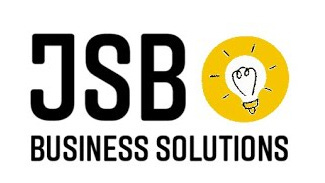How Do You Effectively Pivot in Business?
Without passion, where will you find the energy to persist when others won’t? Stay up late and wake up early to build your business? Read and study until your eyes water from fatigue? Pursue your...
You woke up this morning and realized you’ve lost the passion for your business. Or, even after countless coaching sessions and business podcasts, you’ve hit a wall. Maybe you’re wondering whether you should change your company’s vision or long-term goals based on something a colleague or mentor told you last week. You think it may be time to pivot.
Almost every entrepreneur has considered pivoting their business toward a new idea that could better utilize their drive and talent. The million dollar question is, “How can I choose the next project, venture, or deal that will lead me to the most success?”
Here are some factors to take into account when determining where and how to pivot:
#1. Take Inventory
Evaluate the skill, talent, experience, and knowledge stacks you’ve gained from your entrepreneurial journey thus far. Remember that entrepreneurs never start over when they begin something new, but continue building from their experiences to date. Then ask yourself: “Does the new pivot allow you to leverage the things you’re already exceptional at?”
For example, pivoting from a real estate agent to a property manager may not be too much of a leap. You are already familiar with the real estate industry, laws, and regulations. You already know how to estimate and project the value of real estate assets and understand the appetites and tastes of potential homeowners. You know who’s who including contractors, vendors, and your competitors.
#2. Gather Feedback
Ask your current clients or patrons what you are exceptional at. Why did they make the decision to part with their hard-earned money and conduct business with you? What do they like about the products and services you already offer? Are they looking for the new products and services that you wish to pivot into?
Do not rely upon your feelings to make this decision. The opinion of the marketplace is what matters, because the marketplace determines whether your business sinks or swims. Their feedback is your evidence.
#3. Consider Where Your Passions Lie
Passion isn’t everything, but it seems like everything when you don’t have it. While financial success and accouchements may come to your business as you grow, you need passion, energy, and focus in the meantime.
Over 86% of small business owners make less than $100,000 in income from their businesses according to Fundera.
Especially without a promise of exorbitant financial gain, it takes a herculean degree of focus, energy, and passion to overcome the inevitable trials and tribulations that entrepreneurs encounter on a daily basis. Without passion, where will you find the energy to persist when others won’t? Stay up late and wake up early to build your business? Read and study until your eyes water from fatigue? Pursue your goals with precision when personal challenges and distractions interject?
Consider the overlap between the things you are exceptional at and passionate about. If the pivot you’re considering fits within this overlap, you may have a winner.
#4. Consider Operational Impacts
Would your proposed pivot cause too much operational lag? Operational lag is a delay between the initiation of a process or decision and its implementation and impact on the organization. It is caused by a deficit of expertise, knowledge, or experience in how to do something. Operational lag means there is no “muscle memory” of how to do something in the organization, which means that every action requires more time, attention, communication, and resources.
Thinking about your proposed business pivot:
Would initiating this pivot create operational lag in existing areas of your business? If so, are there ways to mitigate this negative impact?
Do you have current business processes that would make it hard to pivot? If so, how could you improve them?
While some operational lag is expected as you and your organization learns new things, operational lag can be minimized by pivoting into areas where you already have expertise (See #1. Taking Inventory above) and that compliment your existing business areas. For example, I am a real estate entrepreneur, business solutions professional, legal services business owner, and budding publisher. What do these businesses have in common? Each role, service offering, or vertical revolves around satisfying the needs of other small business owners as my target market. These projects synergize rather than compete.
Take the first step towards elevated performance by scheduling your consultation with JSB Business Solutions. Click this link and schedule a day and time that works best for you.
The world around us wasn’t built by the exceptional. It was built by everyday people who were willing to do exceptional things. Go build something.
Want to learn more about me? Visit my online profile here. Interested in collaborating, gain more insight by clicking here.

Thanks for reading The Grow Givers Project! Subscribe for free to receive new posts and support my work. And remember, sharing is caring.



